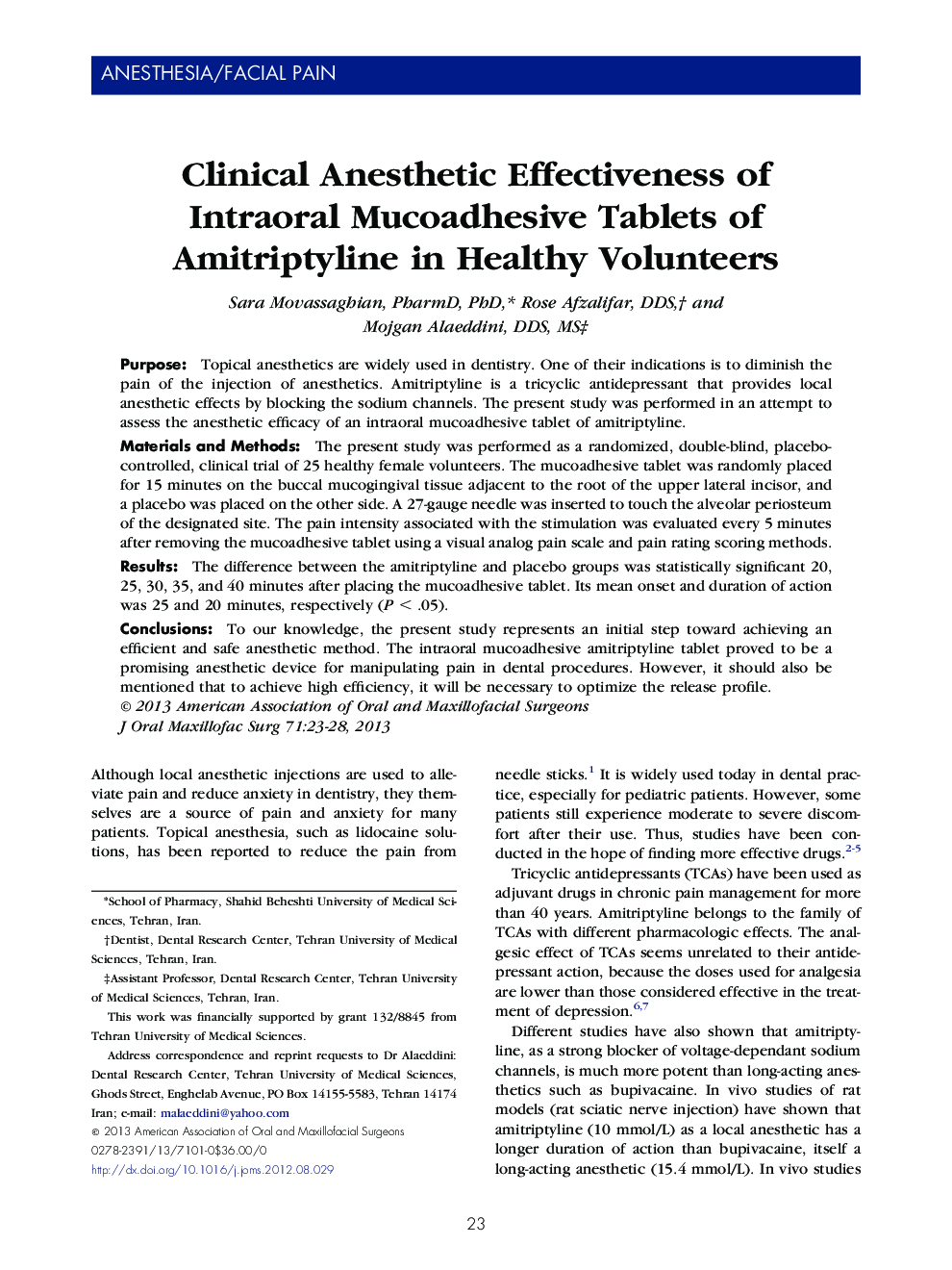| Article ID | Journal | Published Year | Pages | File Type |
|---|---|---|---|---|
| 3158003 | Journal of Oral and Maxillofacial Surgery | 2013 | 6 Pages |
PurposeTopical anesthetics are widely used in dentistry. One of their indications is to diminish the pain of the injection of anesthetics. Amitriptyline is a tricyclic antidepressant that provides local anesthetic effects by blocking the sodium channels. The present study was performed in an attempt to assess the anesthetic efficacy of an intraoral mucoadhesive tablet of amitriptyline.Materials and MethodsThe present study was performed as a randomized, double-blind, placebo-controlled, clinical trial of 25 healthy female volunteers. The mucoadhesive tablet was randomly placed for 15 minutes on the buccal mucogingival tissue adjacent to the root of the upper lateral incisor, and a placebo was placed on the other side. A 27-gauge needle was inserted to touch the alveolar periosteum of the designated site. The pain intensity associated with the stimulation was evaluated every 5 minutes after removing the mucoadhesive tablet using a visual analog pain scale and pain rating scoring methods.ResultsThe difference between the amitriptyline and placebo groups was statistically significant 20, 25, 30, 35, and 40 minutes after placing the mucoadhesive tablet. Its mean onset and duration of action was 25 and 20 minutes, respectively (P < .05).ConclusionsTo our knowledge, the present study represents an initial step toward achieving an efficient and safe anesthetic method. The intraoral mucoadhesive amitriptyline tablet proved to be a promising anesthetic device for manipulating pain in dental procedures. However, it should also be mentioned that to achieve high efficiency, it will be necessary to optimize the release profile.
